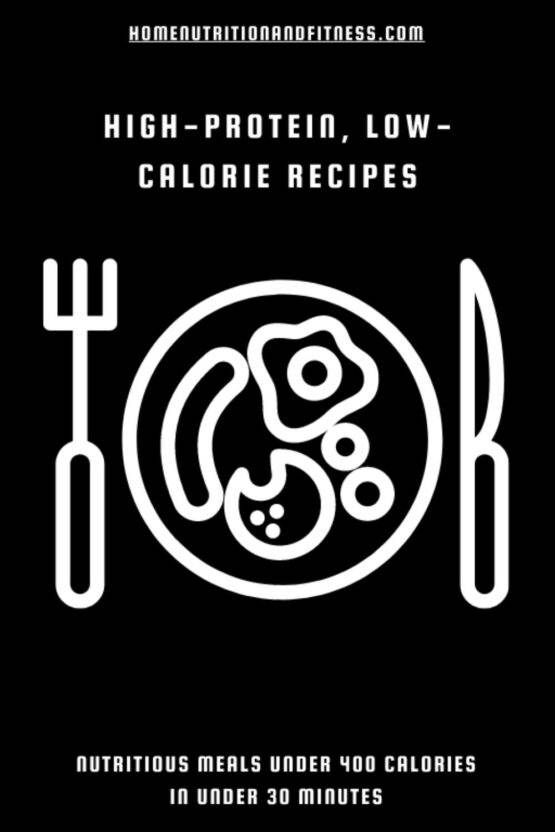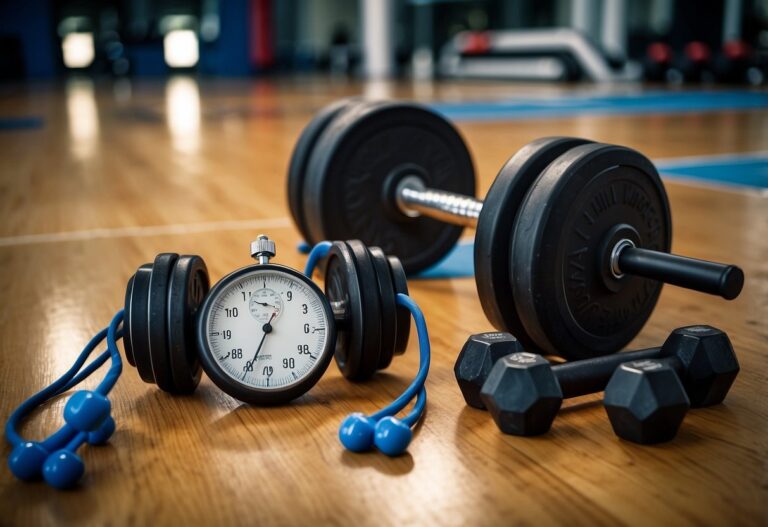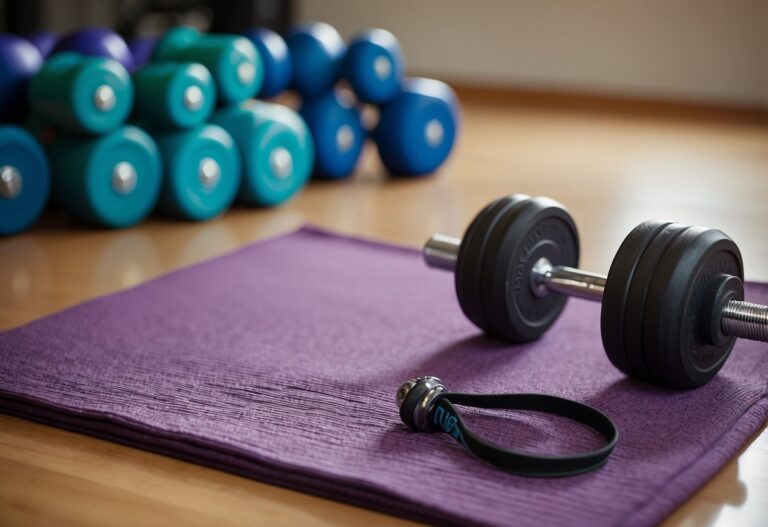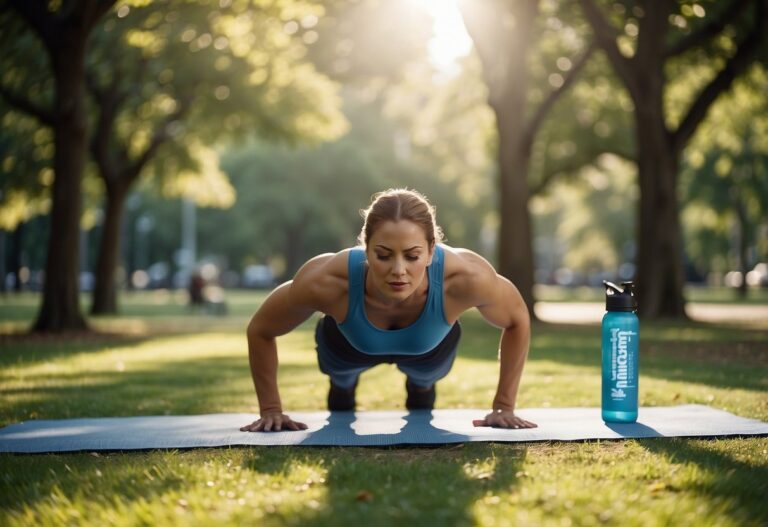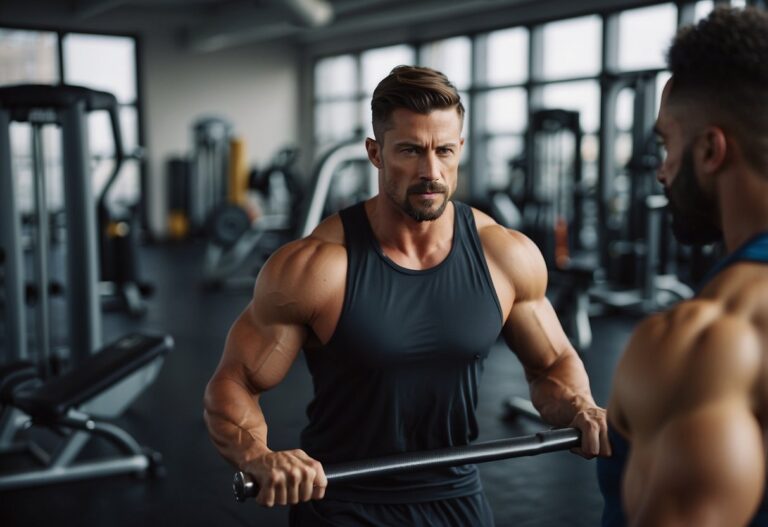Understanding what to eat after a workout is key to improving your fitness and health. After exercising, your body needs the right nutrients to repair muscles, replenish energy stores, and maintain overall health. By focusing on your post-workout nutrition, you can enhance your recovery, maximise the benefits of your hard work, and feel more energised for your next session.
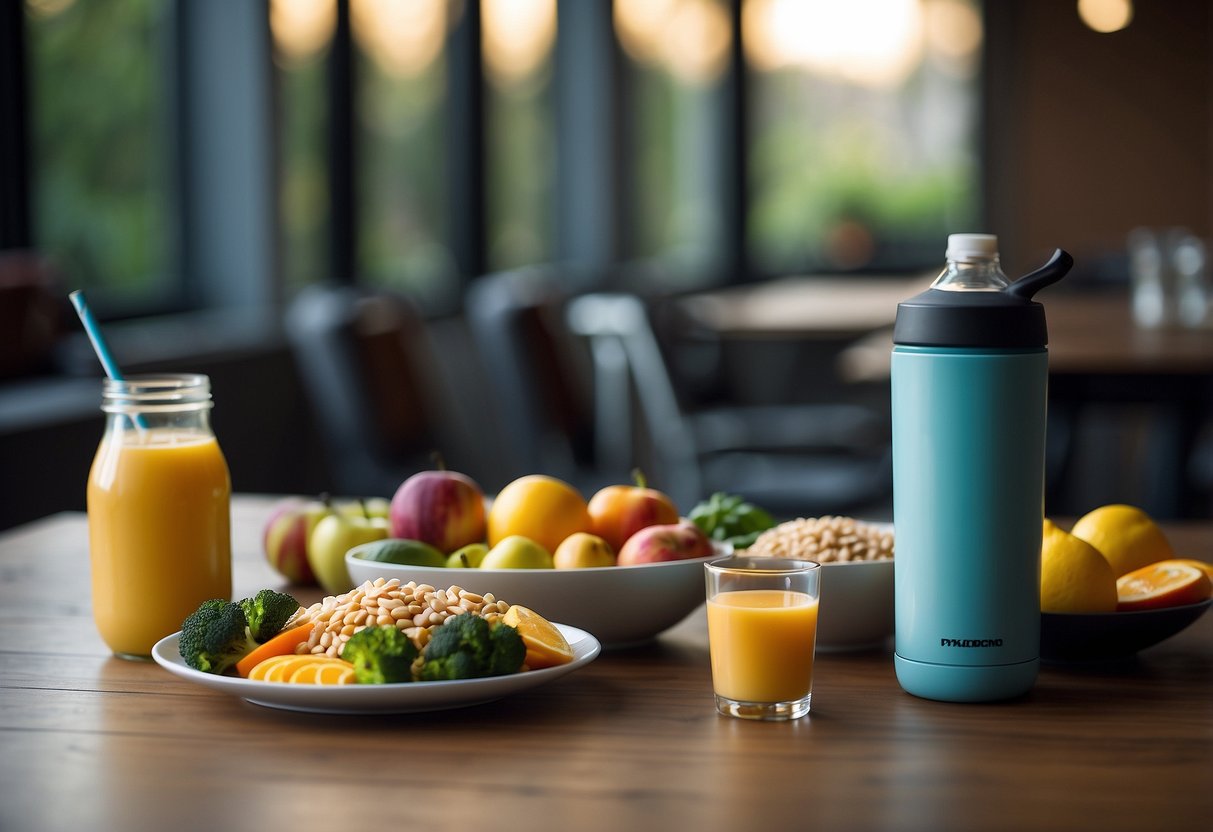
What should you eat after working out to make the most of your efforts? Post-workout nutrition is about balancing proteins, carbohydrates, and fluids to aid recovery and fuel your progress. Whether you’re a seasoned athlete or just starting your fitness journey, knowing what and when to eat can make a significant difference in achieving your goals.
Grilled Chicken with Quinoa
Grilled chicken with quinoa is an excellent post-workout meal. This combination provides high-quality protein and complex carbohydrates, essential for muscle repair and recovery.
Quinoa is a fantastic grain. It’s a complete protein, meaning it has all the essential amino acids your body needs. It also replenishes glycogen stores effectively.
Meanwhile, grilled chicken is lean and packed with protein. Season the chicken with your favourite herbs and spices for extra flavour.
Pairing these together makes a nutrient-rich meal that supports your fitness goals. Plus, it’s easy and quick to prepare.
Greek Yoghurt with Berries

Greek yoghurt with berries is an excellent post-workout snack. It’s packed with protein which helps in muscle recovery and growth.
Adding berries makes this snack even better. Berries are rich in antioxidants and vitamins which support your immune system. They also provide natural sweetness and extra carbs to replenish energy stores.
Try mixing various berries like blueberries, strawberries, and raspberries into your yoghurt. Not only does this improve the taste, but it also adds a range of nutrients.
Greek yoghurt is creamy and satisfying. It’s easy to prepare and you can enjoy it right after your workout.
Wholegrain Bread with Avocado

Wholegrain bread with avocado is a fantastic option for post-workout nutrition.
You’re getting a mix of healthy fats, fibre, and complex carbohydrates. This combination helps in replenishing your energy levels.
Try mashing avocado on a slice of toasted wholegrain bread. Add a sprinkle of salt and pepper to taste.
If you like, you can top it with a poached egg for extra protein. Avocado adds creaminess and pairs perfectly with the crunchy toast.
Salmon and Sweet Potato

Combining salmon and sweet potato is a fantastic post-workout meal. Salmon is high in protein and omega-3 fatty acids, which reduce inflammation and support muscle repair. Sweet potatoes provide complex carbohydrates for energy replenishment.
To prepare, cube a sweet potato and bake it with olive oil and your preferred spices. Then, add a salmon fillet to the pan and continue baking.
You can make this meal in just 30 minutes, and it helps you feel satisfied and energised. It’s a simple yet effective option to help your body recover after a workout.
Hummus and Veggie Wrap
A hummus and veggie wrap is a fantastic post-workout meal. It’s easy to prepare, and packed with nutrients. You can use whole grain wraps, which provide healthy carbs, and fill them with a mix of fresh vegetables like spinach, cucumbers, and bell peppers.
Hummus, made from chickpeas, is an excellent source of protein. This helps in muscle recovery. Adding ingredients like baby spinach gives you a boost of vitamins and minerals too. You could also try adding a bit of roasted pepper for extra flavour.
Next time you need a quick post-workout snack, give the veggie and hummus wrap a try.
Egg White Omelette with Spinach
After a tough workout, an egg white omelette with spinach makes for an excellent recovery meal. Egg whites are high in protein, which helps repair and build muscles. Pairing them with spinach adds a boost of vitamins and minerals.
Start by whisking egg whites in a bowl. Add a pinch of salt and pepper for seasoning. Chop spinach finely and add it to the egg mixture.
Heat a non-stick pan over medium heat. Spray a bit of cooking spray or add a small amount of butter. Pour the egg and spinach mixture into the pan.
Cook until the eggs are set, gently stirring to create small curds. Serve immediately for the best taste and texture.
For a flavourful twist, consider adding some garlic powder or chopped herbs like spring onion. This adds extra nutrients and makes your meal even more delicious.
This spinach and egg white omelette is quick to prepare and packs a nutritional punch. It’s a versatile dish that fits well into any post-workout routine.
Tuna and Brown Rice
Tuna and brown rice is an excellent choice for your post-workout meal. The combination of lean protein from the tuna and complex carbohydrates from the brown rice gives you a balanced, energising meal.
Tuna is convenient and versatile. You can easily mix it into a bowl of cooked brown rice. Adding some vegetables like peas or carrots can make this meal more nutritious.
Brown rice provides the energy you need to recover and refuel after your workout. It keeps you full longer and helps replenish your muscles.
Try seasoning your tuna and brown rice with a bit of soy sauce or herbs for extra flavour. This meal is straightforward to prepare and can be eaten on the go, making it perfect for busy schedules.
Mixed Nuts and Seeds
Mixed nuts and seeds are a fantastic post-workout snack. They provide a good mix of protein, healthy fats, and essential nutrients.
You can grab a handful of almonds, walnuts, and sunflower seeds. It’s easy to toss them in your gym bag.
Nuts and seeds are rich in omega-3 fatty acids, which help reduce inflammation. Plus, they offer magnesium, which is great for muscle recovery.
Pairing nuts and seeds with a piece of fruit, like an apple or a banana, can give you an added boost of energy. It’s a simple way to refuel after your workout session.
Cottage Cheese with Pineapple

Cottage cheese with pineapple is a fantastic post-workout snack. Mixing a cup of cottage cheese with chopped fresh pineapple combines the creamy texture of the cheese with the sweetness of the fruit.
Cottage cheese is rich in protein. Per a 4-ounce serving, you get nearly 13 grams of protein.
The pineapple adds natural sugars and essential nutrients. It also contains bromelain, an enzyme that aids digestion and reduces inflammation.
This snack is not only delicious but also supports muscle recovery and bone health. It’s a refreshing and satisfying option after a good workout.
Beef Jerky and Apple Slices

Ever thought of pairing beef jerky with apple slices for a post-workout snack? This combination is not only tasty but also packed with nutrients.
Beef jerky is a high-protein snack. It contains essential amino acids that help in muscle recovery after a workout. Just ensure you’re choosing a low-sodium option.
Apple slices provide a good dose of carbohydrates. These natural sugars help replenish glycogen stores in your muscles. Plus, apples are rich in fibre, aiding digestion.
Together, beef jerky and apple slices create a balanced and portable snack. Perfect for when you’re on the go!
The Role of Nutrients in Recovery
After a workout, your body needs specific nutrients to help recover and get stronger. Carbohydrates, protein, and healthy fats each play a unique role in this process.
Importance of Carbohydrates
Carbohydrates are vital for replenishing your body’s energy stores. During exercise, your body burns through glycogen, which is stored energy from carbs. After you finish, you need to refill these glycogen stores to prepare for your next session. This is why eating carbs like rice, oats, or fruits post-workout is so crucial.
Different types of carbs work better at different times. For instance, simple sugars can quickly replenish energy stores, whereas complex carbs provide a steady supply of energy throughout the day.
Aim to pair your carbs with protein for better muscle recovery. Think along the lines of a peanut butter and banana sandwich or yoghurt with granola. This combination can help you feel energised and get the most out of your next workout.
Role of Protein
Protein is essential for muscle repair and growth. Exercise causes tiny tears in your muscle fibres. Protein helps to repair these tears, making your muscles stronger and more resilient.
Aim for 20-30 grams of high-quality protein within an hour of finishing your workout. This can come from various sources such as chicken, fish, tofu, or protein shakes. Try mixing protein powder with a banana for a quick and effective post-workout snack.
Not only does protein aid in muscle repair, but it also helps to balance your nitrogen levels, which is crucial for creating new muscle tissue. Consistent intake of adequate protein ensures better recovery and less muscle soreness.
Benefits of Healthy Fats
Healthy fats, while not the immediate go-to post-workout nutrient, play a longer-term role in recovery. They are essential for reducing inflammation and supporting overall cell function. Omega-3 fatty acids, found in fish like salmon or flax seeds, are particularly beneficial.
Healthy fats also help you feel fuller for longer, which can prevent overeating. Incorporating foods like avocados, nuts, and olive oil into your diet ensures you get a good balance of nutrients.
For instance, adding a handful of nuts to your post-workout yoghurt and fruit can make for a more balanced recovery meal. Just be mindful of portion sizes, as fats are calorie-dense.
In summary, understanding how to use these nutrients effectively can significantly enhance your recovery process and improve your fitness outcomes.
Timing and Frequency of Post-Workout Meals
Knowing when and how often to eat after exercise is key to maximising your recovery and supporting muscle growth. Here’s what you need to know about the optimal timing for nutrient intake and the frequency of meals after your workout.
Optimal Timing for Nutrient Intake
Eating soon after your workout is crucial. Aim to consume a post-workout meal within 30-60 minutes of finishing your exercise. This window is important because your muscles are most receptive to nutrients, helping with repair and growth.
Choose a combination of protein and carbohydrates to support muscle recovery and replenish glycogen stores. For example, 20-30 grams of high-quality protein can be found in sources like chicken, eggs, or whey protein shakes. Pairing this with carbohydrates such as rice, sweet potatoes, or whole-grain toast will enhance your recovery process.
Frequency of Meals After Exercise
It’s not just about the immediate meal after the workout; spreading your meals throughout the day can further aid recovery. Aim for regular meals every 3-4 hours containing balanced amounts of protein, carbohydrates, and fats. This consistency ensures a steady supply of nutrients for muscle repair and energy restoration.
If you had a shake during your workout, you might want to wait 30-45 minutes before eating a full meal. Real foods like grilled chicken with roasted vegetables or an egg omelette with avocado spread are great post-workout options. Including snacks rich in nutrients between meals can also keep your energy levels stable and support continuous muscle repair.
Hydration Strategies
Staying hydrated is crucial after exercising to aid recovery and ensure your body functions at its best. Good hydration practices focus on rehydrating with water and balancing electrolytes.
Importance of Rehydration
Rehydration after a workout is vital. When you exercise, you lose water through sweat, and this needs to be replaced. Without proper rehydration, you might feel fatigued, dizzy, and less able to recover.
One effective strategy is to drink 16 to 24 ounces of water for every pound lost during exercise. This replenishes the fluids your body needs.
You should start rehydrating immediately after your workout. Keeping a water bottle handy can remind you to drink regularly.
Rehydration is not optional. It is a necessary step in your post-workout routine to maintain energy levels and promote muscle recovery.
Electrolyte Balance
Electrolytes, like sodium, potassium, and magnesium, are crucial for muscle function and recovery. These minerals help balance fluids in your body and support nerve signals.
After intense workouts, it’s important to replenish these electrolytes. You can do this by drinking sports drinks or consuming foods rich in electrolytes, such as bananas and nuts.
Drinking a solution of water with electrolytes can improve hydration more effectively than water alone, especially if you’ve been sweating heavily.
Taking care of your electrolyte balance helps you recover faster and reduces the risk of cramps. This ensures your body gets what it needs to repair and strengthen muscles. Keeping some electrolyte-enriched drinks or snacks handy post-workout can make a significant difference in your recovery process.

